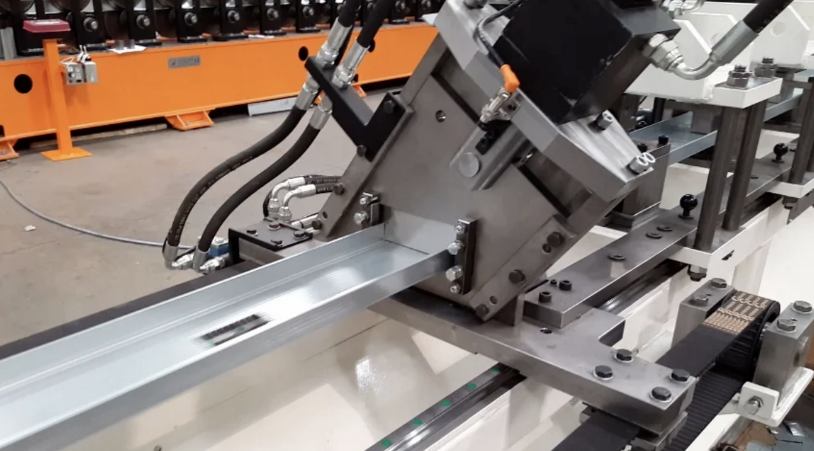
Posted on Thursday, October 3, 2024
In today's construction industry, sustainability is a top priority as architects, builders, and manufacturers look for ways to minimize environmental impact while still meeting project demands. Roll forming technology plays a pivotal role in supporting these sustainability efforts, making it a valuable tool in eco-friendly building practices. Here’s how:
One of the primary benefits of roll forming in sustainable construction is its ability to reduce material waste. Traditional manufacturing methods often involve cutting and reshaping metal, leading to significant scrap and off-cuts that go unused. In contrast, roll forming uses precise, continuous production processes that optimize material usage. This means that almost all of the raw material is converted into the final product, greatly minimizing waste and reducing the need for additional resources.
Roll forming machines are known for their energy efficiency. Compared to other metal forming processes, such as stamping or press braking, roll forming requires less energy to shape materials. This is because the process involves gradually bending metal into the desired shape through multiple stages, rather than using forceful impacts. This not only saves energy but also lowers operational costs for manufacturers, making roll forming an eco-friendly and economically viable solution.
Sustainable construction often emphasizes the use of recyclable materials, and roll forming perfectly aligns with this goal. Most metals used in roll forming, such as steel and aluminum, are highly recyclable. These materials can be melted down and reformed without losing their structural integrity, allowing them to be reused in future projects. Additionally, roll forming is compatible with recycled metal coils, further enhancing the sustainability of the manufacturing process by reducing the demand for virgin materials.
Another aspect of sustainability is creating buildings and infrastructure that last. Roll-formed metal components, such as panels, beams, and purlins, are known for their strength, durability, and resistance to weathering. These qualities ensure that buildings constructed with roll-formed parts have longer lifespans, reducing the need for frequent repairs or replacements. By contributing to the longevity of buildings, roll forming indirectly supports sustainability by decreasing the consumption of new materials and minimizing the environmental footprint of future construction activities.
In addition to reducing waste and energy consumption, roll forming also supports green building initiatives such as LEED (Leadership in Energy and Environmental Design) certification. The use of recyclable, energy-efficient, and long-lasting materials helps construction projects meet the sustainability criteria outlined in these certifications. Buildings that incorporate roll-formed components often qualify for higher ratings due to their use of environmentally responsible materials and processes.
Roll forming is a key enabler of sustainable construction, offering a combination of material efficiency, energy savings, and recyclability. As the demand for eco-friendly building practices continues to grow, roll forming technology will play an increasingly important role in shaping a greener future for the construction industry. Whether producing metal roofing panels, structural components, or façade systems, roll forming provides an environmentally conscious manufacturing process that aligns with modern sustainability goals.

Used Purlin Roll Forming Machines for Sale Worldwide
Posted on Sunday, January 25, 2026
Pre-Owned Roll Forming Machines for Purlin & Structural Steel Profiles

Used Roof Panel Roll Forming Machines for Sale Worldwide
Posted on Sunday, January 25, 2026
Pre-Owned Roll Forming Machines for Roofing Panel Production

Used Roll Forming Machines for Sale Worldwide
Posted on Tuesday, January 20, 2026
Pre-Owned Roll Forming Machines with Inspection, Verification & Global Support

Steel Coil Supply for Roll Forming Machines Worldwide
Posted on Tuesday, January 20, 2026
Reliable Steel Coil Supply for Roll Forming, Fabrication & Manufacturing Applications
Copyright 2026 © Machine Matcher.